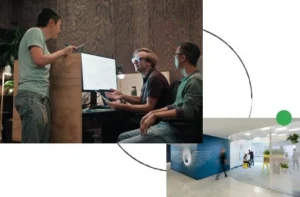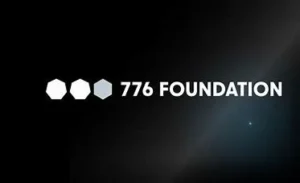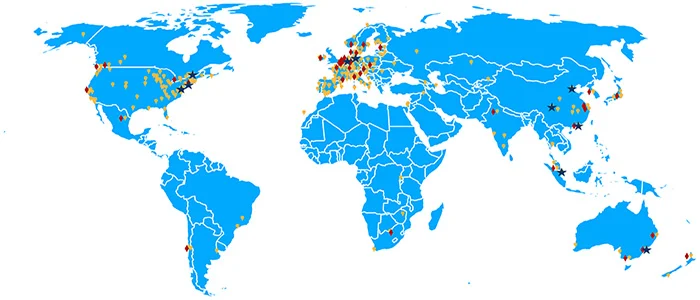The Ministry of Education, Culture, Sports, Science and Technology (MEXT) of Japan offers scholarships to international students who wish to study at Japanese universities as Undergraduate Students under the Japanese Government (MEXT) Scholarship Program as follows.
1. DEFINITION OF “UNDERGRADUATE STUDENTS”
Those who are enrolled in an undergraduate course at a university, or who are receiving preparatory education in the Japanese language and other subjects prior to placement at the university.
2. FIELDS OF STUDY
Those who apply for an undergraduate student must choose a “Field of Study (“Social Sciences and Humanities” or “Natural Sciences”), “Course”, and “Major(s)” from the below table. Applicants may enter a first, second, and third choice.
PREPARATORY EDUCATION AND STUDY AT UNIVERSITY (1) Preparatory Education
1 Each grantee will be enrolled at a preparatory educational institution (Tokyo University of Foreign Studies for the grantees who choose the above 2.(1) Social Sciences and Humanities and Osaka University for the grantees who choose the above 2.(2) Natural Sciences) designated by MEXT for the first year of the scholarship period. The preparatory course is a one-year intensive course in the Japanese language and other subjects necessary for preparation for proceeding to university. Its curriculum mainly consists of education in the Japanese language, and includes other subjects such as Japanese affairs, mathematics, English, and social studies for those majoring in Social Science and Humanities, and physics, chemistry and biology for those majoring in Natural Sciences.
2 A grantee who has completed the preparatory education will go on to a university designated by MEXT upon passing its entrance examination undertaken by the university. If a grantee is determined to be incapable of completing the preparatory course, his/her scholarship will be cancelled and he/she will be required to return to his/her home country.
3 If a grantee cannot enter the university even though he/she has completed the preparatory education, his/her scholarship will be cancelled, and he/she will be required to return to his/her home country.
(2) University Education
1 The university which a grantee will enter will be decided by MEXT in consultation with the university and the preparatory educational institution and in comprehensive consideration of the results of the academic examinations in the First Screening conducted at the Japanese Embassy or Consulate (hereinafter referred to “Japanese diplomatic mission”) in the country of applicant’s nationality, academic achievement at the preparatory educational institution, the grantee’s proposed major subject, and the receiving capacity or region of the university. No objection by the grantee against the decision will be allowed.
2 In principle, the academic year begins on April 1 each year and ends on March 31 the following year.
3 All classes will be given in the Japanese language (except where a grantee is directly placed at a university
which requires no Japanese language ability).
4 If a grantee attends the designated university for the prescribed number of years and earns the required number
of credits as determined by the university, he/she will be awarded a Bachelor’s Degree.
(3) Change of Field of Study, Transfer to Another University and Subjects to be Studied
1 A grantee will not be permitted to change his/her course (Social Sciences and Humanities A and B, and Natural Sciences A, B, and C).
2 A grantee will not be permitted to transfer to another university during the period of the preparatory education course or the undergraduate course.
3 A grantee must study compulsory subjects as determined by the preparatory educational institution and the university even if he/she has already studied them at a university outside Japan.
4. DIRECT PLACEMENT
(1) Applicants who have sufficient Japanese language proficiency may choose to enroll directly in their university without taking the preparatory education course. For cases where the undergraduate course of a university does not require Japanese language proficiency at the time of enrollment and allows applicants to enroll without going through the preparatory education, applicants may directly enroll in the said undergraduate course. (These cases are called “direct placement”.) In such cases, enrollment may be either from the spring term (grantees arrive in Japan in April 2022, and start from the spring term) or from the autumn term (grantees arrive in Japan in September or October 2022, and start from the autumn term), depending on the university’s academic calendar.
(2) The decision on universities for placement of applicants who desire direct placement shall be made by MEXT in consultation with the relevant university. The university will examine the applicant’s academic achievement (academic grades in high school, etc.), and determine whether the applicant has adequate language skills for taking an undergraduate course in either Japanese or English by a language proficiency test score (such as the Japanese-Language Proficiency Test (JLPT) for Japanese). In addition, some universities may conduct interviews with applicants or other examinations.
(3) The period of consultation for direct placement will be from after the Second Screening to January 31, 2022. The results of the direct placement vary according to the consultation results and the period when the results are finalized as follows.
1 The accepting university has confirmed the applicant’s acceptance during the consultation period: The
applicant will enroll in the accepting university under direct placement.
2 The university has rejected the applicant’s acceptance during the consultation period: The applicant will be
required to enroll in the preparatory educational institution.
3 The accepting university has confirmed the applicant’s acceptance after the end of the consultation period:
The applicant will enroll in the accepting university under direct placement.
4 The university has rejected the applicant’s acceptance after the end of the consultation period: The applicant
has to withdraw from the scholarship selection.
5. QUALIFICATIONS AND CONDITIONS
MEXT accepts applications from international students for study in Japan who satisfy the following qualifications and conditions. Its aim is to foster human resources who will become bridges of friendship between the grantee’s country and Japan through study in Japan and who will contribute to the development of both countries and the wider world.
(1) Nationality: Applicants must have the nationality of a country that has diplomatic relations with Japan. An applicant who has Japanese nationality at the time of application is not eligible. However, persons with dual nationality who hold Japanese nationality and whose place of residence at the time of application is outside of Japan are eligible to apply as long as they choose the nationality of the other country and renounce their Japanese nationality by the date of their arrival in Japan. The First Screening must be conducted at the Japanese diplomatic mission in the country of which the applicant chooses the nationality.
(2) Age: Applicants, in principle, must be born on or after April 2, 1997. However, applicants who satisfy the conditions for Academic Background stipulated in 3 below must be 18 years of age or older at the time of admission to a university in Japan.
Exceptions are limited to cases in which MEXT deems that the applicant could not apply within the eligible age limit due to the situation or circumstances of the applicant’s country (military service obligation, loss of educational opportunities due to disturbances of war, etc.). Personal circumstances (financial situation, family circumstances, state of health, circumstances related to applicant’s university or place of employment, etc.) will not be considered for exceptions.
(3) Academic Background: Applicants must satisfy any one of the following conditions. However, applicants desiring direct placement must satisfy either the following 1, 3 or 4 condition.
1 Applicants who have completed 12 years of schooling in countries other than Japan. (Applicants who will meet the above condition by March 2022 are eligible. However, applicants wishing to enroll from the autumn term through direct placement must be expected to complete 12 years of schooling by August 2022.)
2 Applicants who have completed their studies at a school equivalent to a Japanese upper secondary school in countries other than Japan. (Applicants who will meet the above condition by March 2022 are eligible.)
3 Applicants who have successfully passed an academic qualification examination that is equivalent to the completion of 12 years of schooling in countries other than Japan. (Applicants who will meet the above condition by March 2022 are eligible.)
4 Other than the above 1, 2 and 3 conditions, applicants who are eligible for enrollment in a Japanese university at the time of application.
(4) Japanese Language: Applicants must be willing to learn Japanese. Applicants must be interested in Japan and be willing to deepen their understanding of Japan before and after arriving in Japan. In addition, in principle, applicants must be willing to carry out their academic studies in Japan in Japanese.
(5) Health: Applicants must submit a health certificate in the prescribed format signed by a physician attesting that the applicant has no physical or mental conditions hindering the applicant’s study in Japan.
(6) Arrival in Japan: In principle, applicants must be able to arrive in Japan between April 1, 2022, and April 7, 2022. Departure from the home residence should be on or after April 1, 2022. If an applicant is to enroll in his/her university from the fall semester through direct placement, he/she must be able to arrive in Japan during the period specified by the accepting university within two weeks before and after the starting date of the university’s relevant academic term for that year.
Excluding cases in which MEXT deems as unavoidable circumstances, the applicant must withdraw from this scholarship program if the applicant cannot arrive in Japan by the end of the specified period above which decided by MEXT or the accepting university.
(7) Visa Requirement: An applicant shall, in principle, newly obtain a “Student” visa at the Japanese diplomatic mission located in the applicant’s country of nationality, and enter Japan with the residence status of “Student.” Accordingly, even if the applicant already has other residence status (“Permanent resident,” “Long-term resident,” etc.), the applicant must change it to the “Student” status and re-enter Japan. Moreover, the applicant should be aware that after expiration of the status as a MEXT Scholarship student and even if the student again applies for their original resident status of “Permanent resident” or “Long-term resident,” such resident statuses might not be necessarily granted. The applicant should also be aware that the scholarship will be cancelled if he/she arrived in Japan without a newly obtained “Student” visa.
(8) Non-Eligibility: Those who meet any one of the following conditions are ineligible. If identified ineligible after being selected as a scholarship student, he/she must withdraw from the scholarship.
1 Those who are military personnel or military civilian employees at the time of their arrival in Japan or during the period of the payment of the scholarship;
2 Those who cannot arrive in Japan by the last date of the period specified by MEXT or the accepting university;
3 Those who are previous grantees of Japanese Government (MEXT) Scholarship programs (including those who withdraw from the scholarship program after the arrival in Japan). The Monbukagakusho Honors Scholarship for Privately-Financed International Students is not included in the Japanese Government (MEXT) Scholarship programs;
4 Those who are currently also applying to another program under the Japanese Government (MEXT) Scholarship system. This includes the programs for which scholarship payments will begin in FY2021, although their final selection results have not been decided yet, and the programs for which scholarship payments will begin in FY2022;
5 Those who are already enrolled in a Japanese university or other institution with a residence status of “Student,” or who are going to be enrolled, or plan to enroll, in a Japanese university or other institution as a privately-financed international student from the time of application to the MEXT scholarship program in the applicant’s country until the commencement of the period for payment of the MEXT scholarship. However, this stipulation does not apply to privately-financed international students who, even though they are enrolled, or are planning to enroll, in a Japanese university or other institution, verifiably complete their studies before the start of the scholarship payment period, return to their home country at the time of the scholarship application, and newly acquire the “Student” residence status and come to Japan;
6 Those who are planning to receive scholarship money from an organization other than MEXT (including a government organization of the applicant’s country) on top of the scholarship money provided by MEXT after the start of the scholarship payment period;
7 Those who are expected to graduate at the time of application and cannot satisfy the condition of academic background by the deadline given;
8 Holders of dual nationality at the time of application who cannot verify that they will give up Japanese nationality by the time of the arrival in Japan;
9 Those who change their residence status to that of other than “Student” after their arrival in Japan;
10 Those who plan to, from the time of application for the MEXT scholarship program, engage in long-term research (such as fieldwork or internship) outside Japan or plan to take a long-term leave of absence from the preparatory educational institution or the university.
(9) Others: MEXT Scholarship will be granted those who are willing to contribute to mutual understanding between Japan and their home country by participating in activities at schools and communities during their study in Japan while contributing to the internationalization of Japan. They shall also make efforts to promote relations between the home country and Japan by maintaining close relations with the university attended after graduation, cooperating with the conducting of surveys and questionnaires, and cooperating with relevant projects and events conducted by the Japanese diplomatic mission after they return to their home countries.
6. PERIOD OF SCHOLARSHIP
- (1) A grantee who studies at a preparatory educational institution prior to enroll in a university: The
scholarship period will last for five years from April 2022 to March 2027, including one-year preparatory education in the Japanese language and other subjects due to be provided upon arrival in Japan. For scholarship grantees majoring in medicine, dentistry, veterinary medicine or a six-year course in pharmacy, the scholarship period will be seven years until March 2029.
- (2) A grantee who enroll in a university through direct placement: The scholarship period will last for four years (or for six years for those majoring in medicine, dentistry, veterinary medicine or in a six-year course in pharmacy). The scholarship period will start from the time of enrollment in the university which the university designates.
(Note1) (Note 2) (Note 3)
In(2)above, the period of enrollment maybe April 2022, September 2022 or October 2022 depending on the university’s academic calendar.
If a grantee graduates earlier or withdraws from his/her undergraduate course for early entrance to graduate school, the scholarship will be provided until his/her graduation or withdrawal.
The grantees majoring a six-year course in pharmacy must undergo the “Pharmaceutical Common Achievement Tests” implemented prior to practical training. In cases when it is impossible for the grantees to fulfill the fixed standards necessary for practical training, the scholarship may be cancelled.
(3) Extension of period of scholarship
If a grantee graduates from an undergraduate course, is admitted for enrollment in a master’s course at a graduate school during the period of his/her scholarship and has outstanding academic achievement that meets certain criteria, he/she may have the scholarship period extended upon a successful examination by MEXT.
7. SCHOLARSHIP BENEFITS
(1) Allowance: 117,000 yen per month. A supplemental regional allowance of 2,000 yen or 3,000 yen per month
will be added to the monthly scholarship amount for the grantees studying or conducting research in specially designated regions. Due to the situation of the Japanese Government’s budget, the amount of payment may be subject to change each fiscal year. If a grantee is absent from the university or the preparatory educational institution for an extended period, the scholarship shall be suspended for that period.
(2) Education Fees: Fees for the entrance examination, matriculation, and tuition at universities will be paid by MEXT.
(3) Traveling Expenses
1 Transportation to Japan: MEXT will stipulate the travel schedule and route, and provide an airline ticket to
grantees who will arrive in Japan during the specified period stated in “5. (6) Arrival in Japan”. The airline ticket will be an economy-class ticket for the flight from the international airport closest to the grantee’s residence (in principle, the country of nationality) to an international airport in Japan used on the normal route to the accepting university. The grantee shall bear at his/her own expense all costs related to domestic travel from the grantee’s residence to the nearest international airport, airport taxes, airport usage fees, special taxes necessary for travel, travel expenses within Japan (including airline transit costs), travel insurance expenses, carry-on luggage or unaccompanied baggage expenses, etc. The grantee shall also bear at his/her own expense travel and lodging costs incurred in a third country if the grantee must travel to a third country before coming to Japan for visa purposes because there are no Japanese diplomatic missions in his/her country, or if there are no direct flights from the grantee’s country of residence to Japan. MEXT will provide an economy-class airline ticket from the grantee’s country of residence to the said third country, and from the third country to an international airport in Japan used on the normal route to the accepting university. In principle, the address given in the space for “Your address before departure for Japan” on the application form shall be recognized as the “residence,” and the airline ticket will be arranged for a flight from the international airport nearest to that address. Except for cases when the grantee must travel to a third country to obtain a visa, MEXT will not provide an airline ticket for cases of travel to Japan from a country other than the grantee’s country of residence due to the grantee’s personal circumstances. If a grantee will arrive in Japan before or after the specified period stated in “5. (6) Arrival in Japan”, travel expenses will not be paid.
2 Transportation from Japan: Based on the application by the grantee, MEXT will provide an airline ticket to grantees who shall graduate the accepting university and return to the home country by the end of the final month of the period of scholarship (See “6. PERIOD OF SCHOLARSHIP”) designated by MEXT. MEXT shall provide an economy-class airline ticket from the international airport in Japan used for the normal route to and from the accepting university to the international airport (in principle, in the country of nationality) nearest to the returning recipient’s residence. The grantee shall bear at his/her own expense all costs related to travel from the grantee’s residence in Japan to the nearest international airport, airport taxes, airport usage fees, special taxes necessary for travel, travel expenses within the country of nationality (including airline transit costs), travel insurance expenses, carry-on luggage or unaccompanied baggage expenses, etc. If a grantee returns to the home country before the end of period of scholarship due to personal circumstances, or reasons stated in “8. SUSPENSION OF PAYMENT OF SCHOLARSHIP”, MEXT will not pay for the returning travel expenses.If a grantee continues to stay in Japan after the scholarship period has ended in cases such as proceeding to further education or being employed in Japan, travel expenses for a temporary return will also not be paid.
8. SUSPENSION OF PAYMENT OF SCHOLARSHIP
Payment of the scholarship will be cancelled for the reasons given below. Should any of the following reasons apply, the grantee may be ordered to return a part of, or all of, the scholarship paid up to that time. Payment of the scholarship may also be stopped during the period up to the decision on the disposition of the matter.
1 A grantee is determined to have made a false statement on his/her application;
2 A grantee violates any article of his/her pledge to the Minister of Education, Culture, Sports, Science and Technology;
3 A grantee violates any Japanese laws and is sentenced and imprisoned for an indefinite period or for a period of exceeding 1 year;
4 A grantee is suspended from his/her university or preparatory educational institution or receives other punishment, or is removed from enrollment; as a disciplinary action in accordance with school regulations of the accepting institution;
5 It has been determined that it will be impossible for a grantee to complete the course within the standard period of study because of poor academic grades or suspension or absence from the university or preparatory educational institution;
6 A grantee came to Japan without newly acquiring the “Student” residence status, or changed his/her residence status to one other than “Student”;
7 A grantee has received another scholarship (excluding those specified for research expenditures);
8 A grantee proceeds to a more advanced level of education without receiving approval for an extension of the period of the scholarship.







